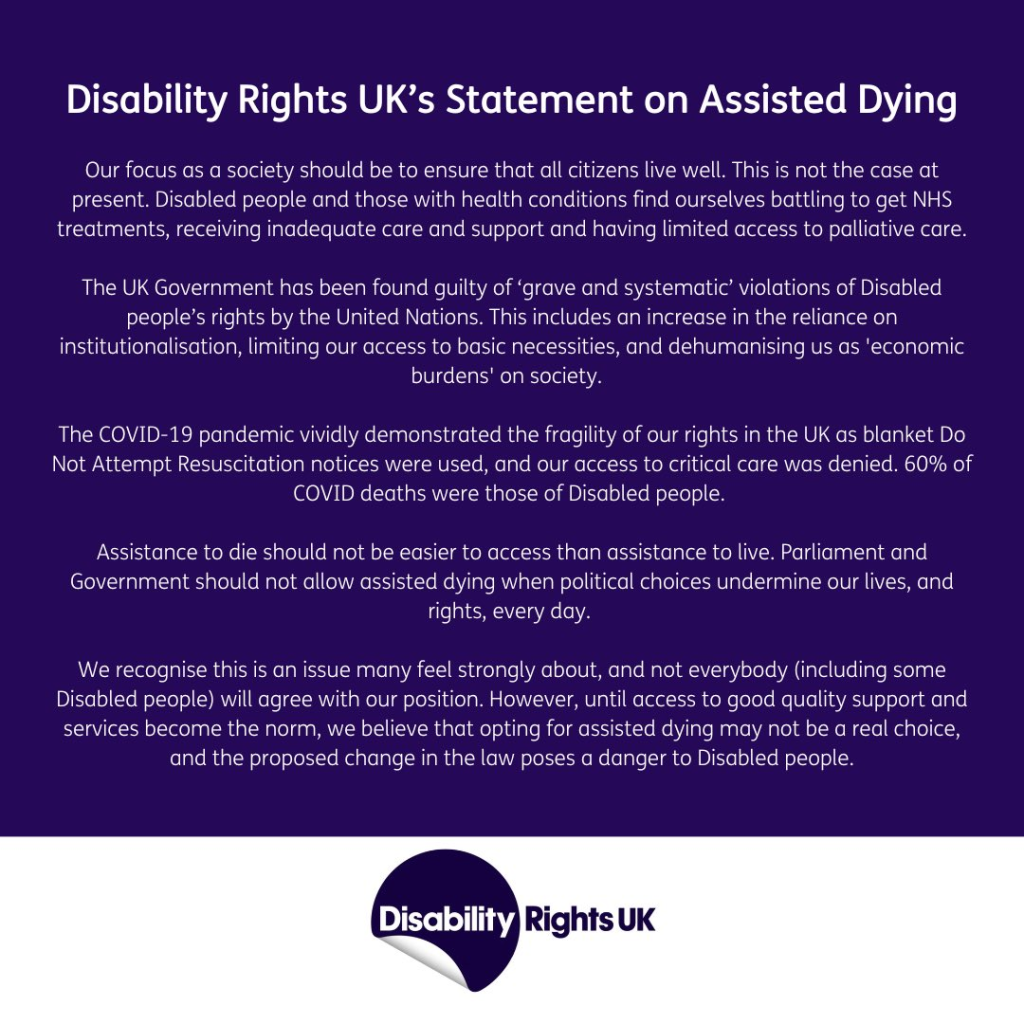
A Dire Warning Against Ethical Decay
The Assisted Dying Bill poses one of the most significant moral challenges of our time. Advocates argue for compassion and autonomy, but the consequences of legalizing euthanasia stretch far beyond the individual. This is not merely a legislative debate; it is a battle for the soul of our nation. The erosion of shared moral frameworks, the normalization of death as a solution, and the abandonment of society’s most vulnerable all point toward a dangerous ethical shift. Experiences from Canada and Oregon demonstrate how assisted dying can spiral into an uncontrollable ethical abyss, undermining the foundational values of trust, accountability, and the sanctity of life. As Britain faces this watershed moment, it must reject the seductive but dangerous rhetoric of “choice” and instead fight to protect life, dignity, and the shared rules that hold society together.
Oregon’s Grim Lessons
Oregon’s assisted dying model, often held as an example of successful legislation, exposes the harrowing reality of euthanasia. Firstly, recent deaths have included people whose only reason was anorexia, arthritis or “complications from a fall”. The average time from ingestion of lethal drugs to death is over four hours, but some cases extend into eight or more hours. People have suffered through convulsions, vomiting, or even waking from comas. In one horrifying incident, a malfunctioning “death pod” is alleged to have led to the woman being found dead with strangulation marks, as if there was a desperate and brutal attempt to complete the act.
David Paton warns, “The Oregon model shows us the grim reality: deaths that are neither quick nor dignified” He further argues, “What Oregon offers is not dignity—it’s a cautionary tale of unintended consequences” Such cases expose the dangerous flaws in the romanticized narratives of assisted dying.
The Proponents’ Ethics
Proponents of the Assisted Dying Bill believe they are founding their arguments on an ethical base of compassion. They argue that enabling individuals to end their lives with dignity in cases of unbearable suffering represents the ultimate form of autonomy and kindness. While this intention is commendable, the reality of how such laws unfold tells a different story. Compassion should drive society to alleviate suffering through robust care systems, not to facilitate death as a solution to systemic failures.
The NHS Under Strain
Introducing assisted dying into the UK healthcare system would place unbearable strain on the NHS. The NHS faces significant challenges in delivering basic care, let alone the rigorous oversight required for euthanasia. Palliative care in the UK remains underfunded (with only 30% being government funding), with access highly unequal depending on geographic location. This raises the question: how can a system that cannot adequately support life be expected to safely manage death?
The Vulnerable at Risk
Assisted dying is not about freedom; it is about pressure. Vulnerable individuals—whether disabled, elderly, or suffering from mental illness—are disproportionately targeted. Disability Rights UK say, “Assistance to die should not be easier than assistance to live.” This stark truth highlights how systemic neglect and societal failures drive people toward euthanasia.

The argument is underscored by data from Canada, where euthanasia has been normalized, and many have opted for death due to financial hardship or feelings of being a burden. Initially intended for individuals with terminal physical suffering, the scope expanded to socio-economic reasons such as poverty and homelessness. A concerning case included approval for euthanasia due to financial distress.
28% of Canadians support euthanasia for homelessness, and 27% for poverty, raising alarms about societal values and protections for the vulnerable. The slippery slope isn’t hypothetical; it’s a documented reality in every country where euthanasia has been legalized.
The reality is that individuals may choose death not because they wish to, but because the alternative—living in a broken system—is unbearable. Euthanasia is a false solution that exploits suffering while failing to address its root causes. Once you accept that some lives are not worth living, where do you draw the line?
Society Losing Its Soul
Legalising euthanasia represents a profound moral shift. It elevates individual choice above shared societal rules, dismantling the ethical frameworks that hold society together. The foundational rule of “do not kill” is being discarded in the name of autonomy, leaving us adrift in moral relativism.
This erosion reflects a deeper cultural decay. Posters trivializing the issue have been seen on London Underground, with one featuring a middle-aged woman dancing with glee in pink pyjamas, accompanied by the quote, “My dying wish is my family won’t see me suffer. And I won’t have to.” Such advertisements glamorize death while subtly coercing vulnerable individuals to see their lives as dispensable. Westminster Tube Station, a hub for MPs, has been flooded with similar campaigns, even as 68 people tried to commit suicide on the London Underground last year. The ethical dissonance is glaring: while the UK bans adverts for fast food that might harm people over decades and cheese which probably won’t, death itself is being marketed as a solution to suffering.

The Role of Safeguards and Accountability
Robert Jenrick, a Conservative MP and Shadow Lord Chancellor, has raised substantial concerns about the Assisted Dying Bill’s feasibility and the safeguards it purports to offer. In his letter to the Lord Chancellor, he warns that the judiciary lacks the capacity to manage the burden of cases the bill would create. He states: “The entire premise of the Bill hinges on judges being able to make rigorous and well-considered decisions in a timely manner. There is a real risk that those considering assisted dying will have passed away before a decision is made.”
Jenrick underscores the logistical strain on the judiciary, highlighting that the Family Division, already overburdened with an annual workload of 19,000 sitting hours, would face an additional 34,000 hours under the best-case scenario. This, he argues, would make it “impossible to manage.” HART argues that the chaos will be used as a reason to drop the safeguard almost immediately.
Speaking of slippery slopes, Kim Leadbeater MP, who has proposed the bill, has already endorsed an unsettling perspective, quoting Nick Boles: “If you don’t like the idea of assisted dying, don’t seek medical assistance to arrange your own death. If liberal democracy means anything it is this: that every individual should be free to live their life in the way they want.” However, this misrepresents the essence of liberal democracy. Liberal democracy is not about unfettered individual freedom at the expense of others—it is about balancing personal autonomy with the rule of law, shared ethical principles, and protections for the vulnerable. By prioritizing unchecked individual choice, this argument risks undermining the very fabric of a society built on collective responsibility.
Failing to police criminal negligence
Before addressing the UK’s coroner system, it is vital to look at Canada, where systemic flaws in euthanasia oversight have already emerged. Recent reports reveal that 428 cases of potential noncompliance with euthanasia laws in Ontario alone were documented by the Chief Coroner’s Office between 2018 and 2023. Despite this, not a single case was referred to law enforcement for investigation, even when violations included blatant failures to comply with legal safeguards. In one harrowing example, a practitioner administered incorrect medications, leading to prolonged suffering for both the patient and their family, yet faced no criminal repercussions.
The supposed safeguards for vulnerable people—like robust assessments of mental capacity and waiting periods—were often disregarded. Instances of shortened waiting periods, improper documentation, and cases of euthanasia performed on individuals whose capacity to consent was questionable highlight a pattern of neglect. These failures suggest that oversight mechanisms have been repurposed not to enforce safeguards but to shield noncompliant practitioners from scrutiny.
Such findings should alarm policymakers in the UK. If a jurisdiction with extensive regulatory frameworks and dedicated coroner oversight cannot maintain compliance, how can Britain expect better results under its strained systems?
Former Chief Coroner for England and Wales, His Honour Thomas Teague KC, has expressed similar concerns regarding the UK’s system, warning that removing the coroner’s role in scrutinizing assisted dying cases would be a grievous mistake. Teague argues that the removal of coroner oversight risks turning the system into one of unchecked and unexamined deaths, leaving vulnerable individuals at significant risk. He notes, “The public may wonder why the Bill proposes to abandon such a robust safeguard. The approval of the High Court is no substitute… and could offer no assurance that the assistance had been provided in strict compliance with the law.”
Unelected and Financially Influential Forces
While the Assisted Dying Bill has been presented as a matter of personal freedom and dignity, the immense lobbying and financial forces backing it raise significant concerns. Dignity in Dying, the primary campaign group supporting the bill, has supported men under investigation for their wives’ deaths, including cases involving domestic violence and even when one of the men had previously been jailed for grievous bodily harm against a second wife. They spent over £650,000 on Facebook and Instagram advertising since 2018, including £181,122 in the past 90 days alone. This level of spending far outstrips the resources available to organizations representing underfunded advocacy groups for disability rights and palliative care, creating a skewed public debate.
For example, Disability Rights UK, which strongly opposes the bill, operates on a fraction of this budget and struggles to amplify its concerns over the pressure euthanasia laws place on vulnerable groups. Meanwhile, lobbying by pro-euthanasia groups ensures that their voices dominate media coverage and political discourse. This imbalance is further exacerbated by strategic advertising, such as the saturation of Westminster Tube Station with pro-euthanasia posters—a move that disproportionately influences lawmakers.
The financial disparity effectively silences dissenting voices and narrows the range of perspectives in the public sphere. Palliative care organizations, already battling limited funding to support their essential work, cannot compete with well-funded campaigns that reduce assisted dying to a marketable slogan. This inequity undermines democratic deliberation, prioritizing the loudest and wealthiest over the most vulnerable and underrepresented.
Conclusion
The Assisted Dying Bill is not a step toward compassion or progress—it is a descent into ethical chaos. Oregon and Canada provide stark warnings of how such legislation undermines societal values, fails to protect the vulnerable, and commodifies death.
Britain must reject this bill outright. To legalize euthanasia is to betray the very principles that define a civilized society: the sanctity of life, the duty to protect the vulnerable, and the shared moral frameworks that hold us together. We have become desensitized to the idea of death as a solution, reflecting a deep societal malaise.
This is not merely a political issue; it is a moral test. We must stand firm, reaffirming the value of every life and rejecting the dangers of death on demand.
Please send this letter to your MP:
Subject: The Assisted Dying Bill: Foundational Ethics the Need for Fair Debate
Dear [MP’s Name],
As your constituent, I urge you to vote against the Assisted Dying Bill.
You have been directly subjected to a massively funded campaign promoting this bill, with pro-assisted dying advertisements flooding the Westminster Tube Station—dubbed the “Westminster Death Tunnel.” These campaigns are backed by organizations with access to substantial resources and questionable funding sources, allowing them to dominate public discourse. In stark contrast, those who oppose the bill, including disability rights advocates and palliative care groups, lack comparable funds to ensure their voices are heard.
Below are key concerns for your consideration:
- Risk to Vulnerable Populations: Evidence from Canada shows how euthanasia laws have expanded to include non-terminal conditions such as poverty and homelessness. Vulnerable individuals may feel pressured to end their lives due to systemic failures, not genuine autonomy.
- Failures in Oversight: In Ontario, Canada, 428 cases of potential noncompliance with euthanasia laws were documented between 2018 and 2023, with no cases referred to law enforcement. Without robust oversight, the UK risks the same pattern of abuse.
- Judiciary Overload: Robert Jenrick MP highlights that the Family Division would need an additional 34,000 sitting hours annually to manage assisted dying cases—an impossible burden on an already strained judiciary. This will inevitably lead to weakened safeguards.
- Slippery Slope Reality: Oregon’s “Death with Dignity” Act has seen assisted dying used for conditions such as anorexia and arthritis. Deaths have involved prolonged suffering, including cases lasting over eight hours, undermining claims of a “peaceful death.”
- Impact on Palliative Care: Hospice UK reports that only 30% of palliative care funding comes from the government. Introducing euthanasia risks further neglect of these vital services, which aim to support life, not end it.
This bill is not merely a matter of individual autonomy—it is a test of our societal commitment to protect life and the vulnerable. I encourage you to read the accompanying article, which provides a detailed analysis of these issues. https://www.hartgroup.org/the-assisted-dying-bill-in-the-uk/
Your decisions on this bill will shape the ethical and social framework of our nation for generations to come.
Yours sincerely,
[Your Name]
[Your Contact Information – you need to include your full address]

